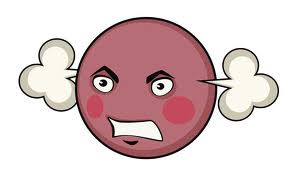
People with anger management issues present unique problems. But there's a fascinating new route to helping them overcome their tempers
Breathing techniques have helped me to control my anger. I know that if I take a moment to concentrate on my breathing and not my anger, I'll have something else to focus on.
When does anger become a problem?
Anger can be a useful emotion that triggers a physical reaction in the body. This reaction is called 'fight or flight' and it normally happens when we are stressed or threatened. Adrenaline is pumped around the body, making you feel tense and ready to 'fight' the threat, or flee.
The problem here is that fighting or running away isn't usually an appropriate option. This can make it difficult for us to express anger, and this is where some people develop a problem.
When you aren't able to express your anger, you may bottle it up. This can cause angry outbursts at inappropriate times. It may also make you feel more angry in general, leading you to react more aggressively in other situations.
Everyone's experience will differ, but the following types of anger issues are recognised as potentially damaging:
Chronic anger - Ongoing, prolonged anger can affect the immune system and result in other mental health issues.
Passive anger - When people express their anger in a passive way it often affects relationships.
Overwhelmed anger - Caused when an individual feels there is simply too much to cope with.
Self-inflicted anger - When anger is directed toward yourself due to guilt, it can be mentally damaging.
Judgmental anger - Directed towards others, the feeling of anger usually comes with resentment.
Volatile anger - Leading to violent outbursts, this form of anger can be troubling for loved ones.
If you don't learn how to deal with anger, it can lead to physical and mental health problems.
Physical effects of anger
Suffering from anger management issues in the long-term can affect your health. Research shows it can link to the following conditions:
Emotional effects of anger
Not being able to express your anger can eventually lead to further mental health conditions, such as:
depression
self-harm
anxiety.
high blood pressure
In some cases, anger management problems can be a symptom of another mental health concern. If you are experiencing any of these conditions a visit to your doctor is recommended.


